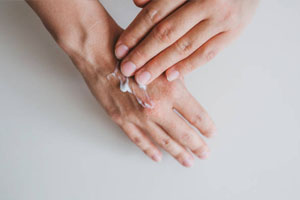Learn how to select the perfect skincare products for your skin type and concerns Discover the importance of identifying your skin s unique needs and understanding common skincare ingredients for a healthier, more radiant complexion
Choosing the right skincare products is a crucial step towards achieving and maintaining healthy, radiant skin. The vast array of products available in the beauty market can be overwhelming, but understanding your skin's unique needs and the purpose of different products will help you make informed choices. In this guide, we'll explore the factors to consider when selecting skincare products that align with your specific skin type and concerns. Whether you have dry, oily, sensitive, or combination skin, we'll provide insights on tailoring your skincare routine for the best results.
We'll delve into the importance of identifying your skin type and understanding your skin's unique characteristics. By recognizing whether you have oily, dry, sensitive, or combination skin, you can narrow down your product choices and ensure they work harmoniously with your skin's needs.
Additionally, we'll discuss how to pinpoint your specific skin concerns. Whether you're looking to combat acne, reduce signs of aging, or achieve a more even skin tone, selecting products designed to address these concerns is essential.
Reading skincare product labels can often be confusing, with a multitude of ingredients and claims. We'll provide tips on deciphering these labels, so you can make informed decisions about what goes on your skin.
Understanding common skincare ingredients is also key to choosing the right products. We'll cover the basics of ingredients like hyaluronic acid, retinol, and antioxidants, and how they can benefit your skin.
Each section of this guide will help you make more informed choices when it comes to your skincare routine, ultimately guiding you toward a regimen that aligns with your unique needs and goals. Achieving healthy, beautiful skin starts with selecting the right products, and we're here to assist you on that journey.

Understanding Your Skin Type
Why Knowing Your Skin Type Matters
Understanding your skin type is the foundation of building an effective skincare routine. It helps you choose the right products and address your skin's unique needs. Here's why it matters.
The Different Skin Types
There are four primary skin types:
- Oily Skin: Oily skin tends to produce excess sebum, making it appear shiny and prone to acne.
- Dry Skin: Dry skin lacks moisture, often feeling tight or flaky.
- Combination Skin: Combination skin is a mix of oily and dry, typically with an oily T-zone (forehead, nose, and chin) and drier cheeks.
- Sensitive Skin: Sensitive skin is easily irritated and may react to certain products or environmental factors.
How to Determine Your Skin Type
To determine your skin type, perform a simple test:
- Wash your face gently with a mild cleanser.
- Pat it dry and leave your skin untouched for a few hours.
- Observe how your skin feels:
- Oily: If your skin looks shiny and feels greasy, you likely have oily skin.
- Dry: If your skin feels tight, rough, or flaky, you have dry skin.
- Combination: If you notice both oily and dry areas, you have combination skin.
- Sensitive: If your skin feels itchy, irritated, or develops redness, it's sensitive.
Tailoring Your Skincare to Your Skin Type
Once you've identified your skin type, you can select products that cater to its specific needs. For example:
- Oily Skin: Opt for oil-free cleansers and lightweight, non-comedogenic moisturizers.
- Dry Skin: Choose hydrating cleansers and rich, emollient creams.
- Combination Skin: Use gentle, balanced products and adjust your routine for different areas of your face.
- Sensitive Skin: Look for fragrance-free, hypoallergenic products to minimize irritation.
Regular Skin Assessments
Keep in mind that your skin type can change due to factors like age and climate. It's essential to regularly reassess your skin to adjust your skincare routine accordingly.
Identifying Your Skin Concerns
Why Identifying Skin Concerns is Important
Identifying your skin concerns is a crucial step in crafting a personalized skincare routine. It allows you to address specific issues and choose products that work best for you. Here's why it's essential.
Common Skin Concerns
There is a wide range of skin concerns people may have. Some of the most common include:
- Acne: Characterized by pimples, blackheads, and whiteheads, acne often results from clogged pores and excess sebum production.
- Wrinkles and Fine Lines: As we age, our skin naturally loses collagen and elasticity, leading to the formation of wrinkles and fine lines.
- Dark Spots (Hyperpigmentation): Dark spots can result from sun exposure, acne scars, or hormonal changes.
- Redness and Sensitivity: Some people have sensitive skin prone to redness, itching, or irritation.
- Dryness and Dehydration: Dry skin lacks moisture, often feeling tight or flaky, while dehydration refers to a lack of water in the skin.
Assessing Your Skin Concerns
To identify your specific skin concerns, ask yourself the following questions:
- What bothers you the most about your skin?
- Have you noticed persistent issues like acne or dryness?
- Are there particular areas of concern, such as the forehead, under eyes, or cheeks?
- Do certain factors, like sun exposure or hormonal changes, worsen your skin issues?
Consulting a Dermatologist
If you're unsure about your skin concerns or have serious issues, consider consulting a dermatologist. They can provide a professional assessment and recommend suitable treatments.
Selecting Products for Your Concerns
Once you've identified your skin concerns, you can choose products tailored to address them. For example:
- For Acne: Look for products with salicylic acid or benzoyl peroxide.
- For Wrinkles and Fine Lines: Consider products with retinol or hyaluronic acid for hydration.
- For Dark Spots: Use products containing ingredients like vitamin C or niacinamide.
- For Redness and Sensitivity: Opt for gentle, fragrance-free products.
- For Dryness and Dehydration: Choose hydrating and moisturizing products.
Adjusting Your Skincare Routine
Your skincare routine should be adaptable based on your specific skin concerns. Regularly assess your skin's progress and be open to modifying your routine as needed.
Reading Skincare Product Labels
Importance of Understanding Product Labels
The labels on skincare products are packed with valuable information. Understanding these labels is essential for making informed choices and ensuring that the products you use are suitable for your skin. Here's why it matters.
Key Information on Product Labels
When reading skincare product labels, pay attention to the following key information:
- Ingredients List: This section lists all the ingredients in the product, usually in descending order of concentration. Look for potential allergens or irritants if you have sensitive skin.
- Usage Instructions: Instructions on how to use the product, including frequency and application methods.
- Warnings and Precautions: Any special warnings or precautions, such as avoiding contact with the eyes or conducting a patch test.
- Expiration Date: Check the date to ensure the product is within its shelf life for effectiveness and safety.
- Product Type: The label indicates whether the product is a cleanser, moisturizer, serum, sunscreen, or another type of skincare item.
Understanding Ingredient Lists
The ingredient list can be quite complex, but it's crucial to comprehend it. Here's how to make sense of it:
- Active Ingredients: These are the ingredients responsible for the product's primary function, such as hyaluronic acid for hydration or salicylic acid for exfoliation.
- Inactive Ingredients: These provide texture, stability, or fragrance to the product. Be aware of any potential allergens or irritants among the inactive ingredients.
- Fragrance-Free vs. Unscented: Check for these labels. "Fragrance-free" means no added fragrance, while "unscented" may still contain masking fragrances.
Spotting Allergens and Irritants
If you have sensitive skin, it's essential to identify common allergens and irritants. Look out for ingredients like parabens, sulfates, artificial fragrances, and alcohol. Avoid products containing these if they trigger skin reactions for you.
Checking for Product Suitability
After reading the labels, assess whether the product is suitable for your skin type and concerns. Consider how the active ingredients align with your skincare goals and whether any warnings or precautions apply to you.
Doing a Patch Test
If you're uncertain about a product's compatibility with your skin, it's a good practice to perform a patch test. Apply a small amount of the product on a small area of your skin and wait to see if any adverse reactions occur before using it on your face or body.
Staying Informed and Adapting
Skincare is a constantly evolving field. Stay informed about new ingredients, trends, and potential skin sensitivities. Be willing to adapt your skincare routine based on the information you gather and the changing needs of your skin.
Common Skincare Ingredients
Understanding Key Skincare Ingredients
Skincare products often contain a variety of active and inactive ingredients. Understanding these ingredients is essential for making informed choices when selecting products. Here are some common skincare ingredients and their benefits.
Hyaluronic Acid
Hyaluronic acid is a hydrating superstar. It can hold up to 1,000 times its weight in water, making it an excellent choice for moisturizing and plumping the skin. It's suitable for all skin types and helps reduce the appearance of fine lines.
Retinol (Vitamin A)
Retinol is known for its anti-aging properties. It encourages skin cell turnover, reduces wrinkles, and improves skin texture. However, it can be potent and is recommended for nighttime use.
Vitamin C (Ascorbic Acid)
Vitamin C is an antioxidant that brightens the skin, reduces dark spots, and stimulates collagen production. It's great for achieving a radiant complexion but should be stored away from direct light and air to maintain its efficacy.
Niacinamide (Vitamin B3)
Niacinamide is a versatile ingredient. It helps improve skin's barrier function, reducing redness, minimizing pore appearance, and controlling excess oil. It's suitable for various skin types.
Alpha Hydroxy Acids (AHAs)
AHAs like glycolic acid and lactic acid are exfoliants. They remove dead skin cells, promoting a smoother and brighter complexion. They are particularly effective for addressing uneven skin tone and texture.
Beta Hydroxy Acid (BHA) - Salicylic Acid
Salicylic acid is excellent for those with oily or acne-prone skin. It penetrates pores to clear out excess oil and debris, reducing acne and blackheads.
Peptides
Peptides are small proteins that encourage collagen production and help with firmness and wrinkle reduction. They are common in anti-aging products.
SPF (Sunscreen)
Sunscreen is a non-negotiable skincare step. It protects the skin from UV damage, preventing premature aging and reducing the risk of skin cancer. Look for broad-spectrum SPF with at least SPF 30.
Antioxidants
Antioxidants like green tea extract, resveratrol, and coenzyme Q10 protect the skin from environmental damage and free radicals. They can help with anti-aging and overall skin health.
Collagen
Collagen is a protein that provides skin with elasticity and firmness. While collagen creams can't directly replace lost collagen, they can temporarily improve skin texture and appearance.
Consulting a Dermatologist
If you're unsure about specific ingredients or their suitability for your skin, consider consulting a dermatologist. They can recommend products tailored to your unique needs.
Choosing the Right Cleanser
Why the Right Cleanser Matters
Choosing the right cleanser is the foundation of any skincare routine. A cleanser removes dirt, oil, and impurities from your skin, setting the stage for other skincare products to work effectively. Here's why it's crucial.
Types of Cleansers
There are several types of cleansers available, each designed for different skin types and needs. Understanding these types will help you make the right choice:
Gentle Cleansers
Gentle cleansers are suitable for sensitive skin. They are mild and won't strip your skin of its natural oils. Look for terms like "gentle," "soothing," or "hydrating" on the label.
Foaming Cleansers
Foaming cleansers are great for oily skin. They create a lather that helps remove excess oil and impurities. Look for terms like "oil-free" or "deep-cleansing."
Cream Cleansers
Cream cleansers are ideal for dry or mature skin. They are hydrating and leave your skin feeling moisturized. Look for terms like "hydrating" or "nourishing."
Exfoliating Cleansers
Exfoliating cleansers contain ingredients like alpha hydroxy acids (AHAs) or beta hydroxy acids (BHAs) to remove dead skin cells. These are suitable for those looking to improve skin texture.
Consider Your Skin Type
When choosing a cleanser, consider your skin type. Here are some guidelines to help you select the right one:
- Oily Skin: Foaming or gel cleansers are excellent for controlling excess oil.
- Dry Skin: Cream cleansers or oil-based cleansers provide hydration and prevent further dryness.
- Combination Skin: A gentle, balanced cleanser can work for both oily and dry areas.
- Sensitive Skin: Look for fragrance-free and hypoallergenic cleansers to minimize irritation.
Additional Features to Look For
Apart from the basic type and suitability for your skin type, consider the following features when choosing a cleanser:
- Fragrance-Free: Avoid added fragrances, as they can be irritating to the skin, especially for sensitive skin.
- pH-Balanced: A pH-balanced cleanser helps maintain the skin's natural pH, preventing excessive dryness or oiliness.
- Non-Comedogenic: Non-comedogenic cleansers won't clog pores, making them suitable for acne-prone skin.
Double Cleansing
Some people practice double cleansing, which involves using an oil-based cleanser followed by a water-based one. This method is effective for thoroughly removing makeup and sunscreen, but it's not always necessary for everyone.
Changing Your Cleanser
Remember that your skin's needs may change with the seasons or due to other factors. Don't be afraid to switch to a different cleanser if you notice your current one is no longer effective or suitable for your skin.
Selecting the Best Moisturizer
Why Moisturizing is Essential
Moisturizing is a crucial step in any skincare routine. It helps maintain your skin's hydration, acts as a barrier against environmental stressors, and can address various skin concerns. Here's why it's essential.
Types of Moisturizers
There are different types of moisturizers available, and the one you choose should align with your skin type and specific needs. Here are some common types:
Daytime Moisturizers
Daytime moisturizers are typically lightweight and may contain sunscreen. They provide hydration and protection from UV rays. Look for terms like "day cream" or "SPF" on the label.
Night Creams
Night creams are richer and designed to provide extra hydration while you sleep. They often contain ingredients for skin repair and rejuvenation.
Gel Moisturizers
Gel moisturizers are suitable for oily or acne-prone skin. They are lightweight and non-greasy, providing hydration without clogging pores.
Creams and Lotions
Creams and lotions are versatile and work for various skin types. They offer good hydration and can be customized for specific concerns.
Consider Your Skin Type
Your skin type plays a significant role in choosing the right moisturizer. Consider the following guidelines based on your skin type:
- Oily Skin: Opt for oil-free or gel-based moisturizers to avoid adding excess oil.
- Dry Skin: Creams or oil-based moisturizers offer deep hydration to combat dryness.
- Combination Skin: Use a lightweight lotion for oily areas and a richer cream for dry areas.
- Sensitive Skin: Look for fragrance-free and hypoallergenic moisturizers to minimize irritation.
Specialized Moisturizers
Some moisturizers are formulated to target specific concerns. Consider the following specialized options:
- Anti-Aging Moisturizers: These contain ingredients like retinol and peptides to reduce wrinkles and promote firmness.
- Hydrating Moisturizers: Formulated to boost skin's moisture content, often containing hyaluronic acid or glycerin.
- Acne-Prone Skin Moisturizers: These are oil-free and non-comedogenic to prevent breakouts.
- Brightening Moisturizers: Designed to reduce dark spots and improve overall skin tone.
Additional Features to Look For
Beyond skin type and specific concerns, here are some additional features to consider when choosing a moisturizer:
- SPF: If your daytime moisturizer includes SPF, it can simplify your morning routine by combining hydration and sun protection.
- Fragrance-Free: Avoid added fragrances, which can be problematic for sensitive skin.
- Hypoallergenic: Hypoallergenic moisturizers minimize the risk of allergic reactions, making them suitable for sensitive skin.
Application and Routine
To maximize the benefits of your moisturizer, apply it to clean skin. Use gentle upward and outward motions. Incorporate it into your daily skincare routine by applying it after cleansing and any serums or treatments.
Changing Your Moisturizer
Just as with other skincare products, your skin's needs may change over time. Be open to trying different moisturizers if you find that your current one is no longer effective or doesn't address your evolving concerns.
Picking the Right Sunscreen
Importance of Sunscreen
Sunscreen is a non-negotiable part of your daily skincare routine. It protects your skin from harmful UV rays, preventing sunburn, premature aging, and reducing the risk of skin cancer. Here's why sunscreen is crucial.
Types of Sunscreens
There are two main types of sunscreen: chemical and physical (mineral) sunscreens. Each type works differently to protect your skin.
Chemical Sunscreens
Chemical sunscreens contain organic compounds that absorb and dissipate UV rays. They are often lightweight and blend well into the skin. Look for ingredients like avobenzone, octisalate, or octocrylene on the label.
Physical (Mineral) Sunscreens
Physical sunscreens contain active mineral ingredients, typically zinc oxide or titanium dioxide, that create a physical barrier on the skin to reflect UV rays. They are ideal for sensitive skin and provide immediate protection.
SPF (Sun Protection Factor)
The SPF on sunscreen labels indicates the level of protection against UVB rays, which cause sunburn. Here's how to choose the right SPF:
- SPF 15-30: Suitable for everyday use and offers moderate protection.
- SPF 30-50: Provides high protection and is recommended for extended sun exposure.
- SPF 50+: Ideal for very fair or sensitive skin or when spending extended time outdoors.
Broad-Spectrum Protection
Look for sunscreens labeled as "broad-spectrum," which protect against both UVA and UVB rays. UVA rays can cause premature aging, while UVB rays cause sunburn.
Water-Resistant Formulas
If you'll be swimming or sweating, consider a water-resistant sunscreen. However, even water-resistant formulas need to be reapplied after a certain period.
Consider Your Skin Type
Your skin type can influence your sunscreen choice. Here's how to select the right sunscreen based on your skin type:
- Oily Skin: Opt for lightweight, oil-free formulas that won't clog pores.
- Dry Skin: Choose sunscreens with added moisturizers or look for the term "hydrating" on the label.
- Sensitive Skin: Select a sunscreen specifically designed for sensitive skin, which is often fragrance-free and hypoallergenic.
Application Tips
Proper application is key to sunscreen effectiveness. Consider the following tips:
- Apply Generously: Use about a shot glass worth of sunscreen for your entire body and a pea-sized amount for your face.
- Reapply Regularly: Reapply sunscreen every two hours or more frequently if swimming or sweating.
- Don't Forget Vulnerable Areas: Pay attention to often-neglected areas like the ears, back of the neck, and the tops of your feet.
Sunscreen and Makeup
You can incorporate sunscreen into your makeup routine by using makeup products that contain SPF or by applying sunscreen as a base layer before makeup. Makeup with SPF is a convenient way to top up your protection throughout the day.
Check Expiration Dates
Sunscreen can lose its effectiveness over time. Check the expiration date on the product and replace it if it's expired.
Sunscreen for All Seasons
Sunscreen is not just for summer. It should be applied year-round, as UV rays can damage your skin even on cloudy or winter days.
Specialized Skincare Products for Targeted Concerns
Introduction to Specialized Skincare Products
Specialized skincare products are designed to address specific concerns or skin issues. They offer targeted solutions for those looking to tackle particular problems. Here's an overview of these products and how they can benefit your skincare routine.
Anti-Aging Products
Anti-aging products are tailored to address signs of aging, such as fine lines, wrinkles, and loss of firmness. Here are some common anti-aging products and their benefits:
- Retinol Serums: Retinol helps stimulate collagen production and smooth fine lines. It can improve skin texture and reduce the appearance of age spots.
- Peptide Creams: Peptides are amino acids that encourage collagen and elastin production, helping to firm and plump the skin.
- Hydrating Masks: These masks provide intense moisture, which is essential for mature skin to maintain a youthful appearance.
- Antioxidant Serums: Antioxidants like vitamin C and E protect the skin from free radical damage and promote a more youthful complexion.
Brightening Products
Brightening products aim to reduce dark spots, hyperpigmentation, and uneven skin tone. They often contain ingredients that target these issues. Here are some examples:
- Vitamin C Serums: Vitamin C is known for its skin-brightening properties. It can fade dark spots and enhance overall radiance.
- Alpha Arbutin Creams: Alpha arbutin inhibits the production of melanin, making it effective for lightening dark spots.
- Niacinamide Lotions: Niacinamide can reduce redness and discoloration, leading to a more even complexion.
Acne-Fighting Products
Acne-fighting products are specifically formulated to address breakouts, blemishes, and acne-prone skin. These products typically contain ingredients that help control oil and reduce inflammation. Here are some options:
- Salicylic Acid Cleansers: Salicylic acid penetrates pores and exfoliates, making it effective for preventing and treating acne.
- Benzoyl Peroxide Spot Treatments: Benzoyl peroxide can kill acne-causing bacteria and reduce inflammation in pimple-prone areas.
- Oil-Free Moisturizers: Lightweight, oil-free moisturizers help hydrate the skin without exacerbating breakouts.
Sensitive Skin Solutions
Sensitive skin solutions are designed for individuals with easily irritated or reactive skin. These products focus on minimizing redness, dryness, and discomfort. Some sensitive skin products include:
- Fragrance-Free Moisturizers: Avoiding added fragrances reduces the risk of skin irritation.
- Hypoallergenic Cleansers: Hypoallergenic cleansers are formulated to minimize the risk of allergic reactions.
- Calming Serums: Serums containing ingredients like aloe vera or chamomile can soothe sensitive skin and reduce redness.
Customizing Your Skincare Routine
When incorporating specialized skincare products into your routine, it's crucial to ensure they align with your skin's needs and concerns. It's often beneficial to consult with a dermatologist or skincare professional to create a personalized regimen.
Patch Testing
Before using new specialized products, it's a good practice to perform a patch test. Apply a small amount of the product to a small area of your skin to check for any adverse reactions before applying it to your face or body.
Consistency is Key
Achieving the desired results with specialized skincare products often requires consistency. Follow the product instructions and use them as part of your daily or weekly skincare routine to see improvements over time.
Frequently Asked Questions (FAQs)
Q1: What are specialized skincare products?A1: Specialized skincare products are formulations designed to target specific skin concerns. These products contain ingredients tailored to address issues like aging, dark spots, acne, or sensitivity.
Q2: How do I choose the right specialized skincare product for my needs?
A2: To select the right product, first identify your specific skin concern (e.g., wrinkles, uneven skin tone, breakouts). Then, look for products with ingredients known to address that concern. Consulting a dermatologist can also provide personalized recommendations.
Q3: What are some common ingredients in anti-aging skincare products?
A3: Common anti-aging ingredients include retinol, peptides, hyaluronic acid, and antioxidants like vitamin C and E. These ingredients promote collagen production, reduce fine lines, and protect against environmental damage.
Q4: Can I use multiple specialized skincare products at once?
A4: It's possible to use multiple specialized products, but it's crucial to introduce them gradually and ensure they complement each other. Start with one product at a time to assess tolerance and effectiveness.
Q5: How long does it take to see results with specialized skincare products?
A5: The time it takes to see results varies by product and individual skin. In general, results may become noticeable after a few weeks to a few months of consistent use. Be patient and maintain a regular skincare routine for the best outcomes.








